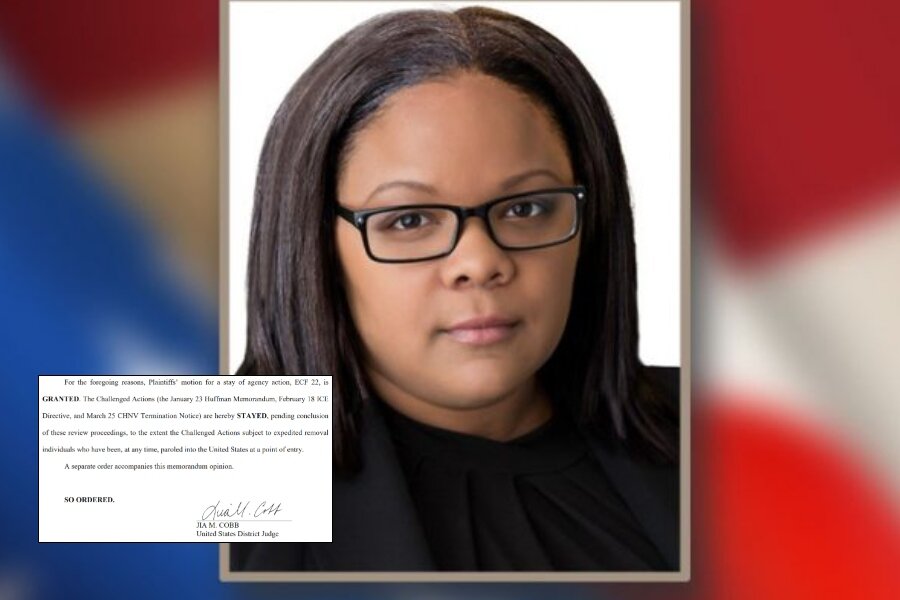A federal judge on Aug. 1 blocked the Department of Homeland Security from revoking the humanitarian parole status of thousands of foreign nationals and subjecting them to expedited removal from the country.
The stay means that the government will not be able to initiate removal proceedings against foreign nationals from Cuba, Haiti, Nicaragua, and Venezuela who were previously granted humanitarian parole when they lawfully entered the country, often through the use of the “CBP One” mobile application.
The judge ruled that efforts to revoke parole and subject the parolees to “expedited removal” violated the Immigration and Nationality Act, which specifically exempts parolees from such removal.
“The challenged agency actions exceed the Department’s statutory authority and are arbitrary and capricious,” wrote Judge Jia M. Cobb of U.S. District Court for the District of Columbia, adding that “Plaintiffs’ members and others in their position face imminent, irreparable injury from those actions that outweighs any harm to the Government or the public from pressing pause.”
Her order provides temporary relief from removal to all persons paroled into the United States.
The stay order issued by Cobb is temporary and will last until the conclusion of the case, when the legality of the actions may be reviewed.
On March 25, the department issued a notice to terminate the parole status for foreign nationals of Cuba, Haiti, Nicaragua, and Venezuela, as well as their immediate family members.
“Parolees without a lawful basis to remain in the United States following this termination of the … parole programs must depart the United States before their parole termination date,” stated the notice.
The parole program began in October 2022 during the Biden administration. It temporarily permits any foreign national to lawfully enter the country regardless of eligibility under the Immigration and Nationality Act.
Under the program, over 532,000 foreign nationals from the aforementioned countries entered the United States, until the Trump administration stopped new grants on Jan. 22.
The parole termination notice revoked the parole status for all such foreign nationals and, following an internal directive by U.S. Immigration and Customs Enforcement (ICE), made them eligible for “expedited removal” from the United States.
Unlike regular removal proceedings, where an alien may receive a hearing before an immigration judge and be granted relief to remain in the country, expedited removal allows the government to remove certain aliens, such as those seeking admission to the United States at the border, “without further hearing or review.”
The parole program for Cuba, Haiti, Nicaragua, and Venezuela nationals “allowed hundreds of thousands of UNVETTED aliens to circumvent the traditional parole process,” the department wrote on X in June. “Known terrorists, gang members, convicted murderers, have all entered this country ‘legally’ under this program.”
Share your thoughts by scrolling down to leave a comment.













